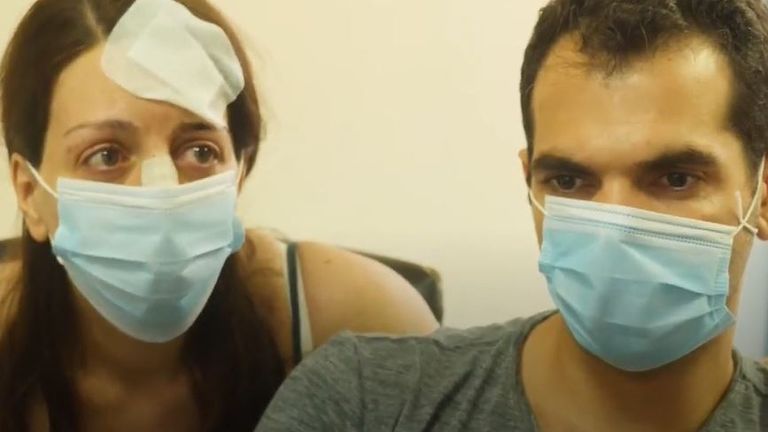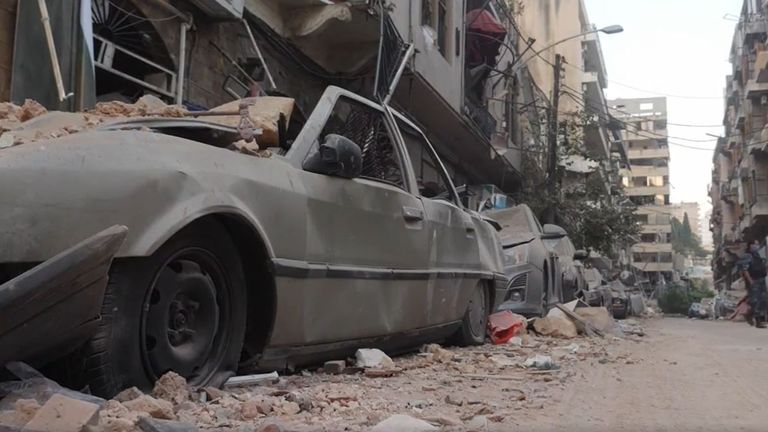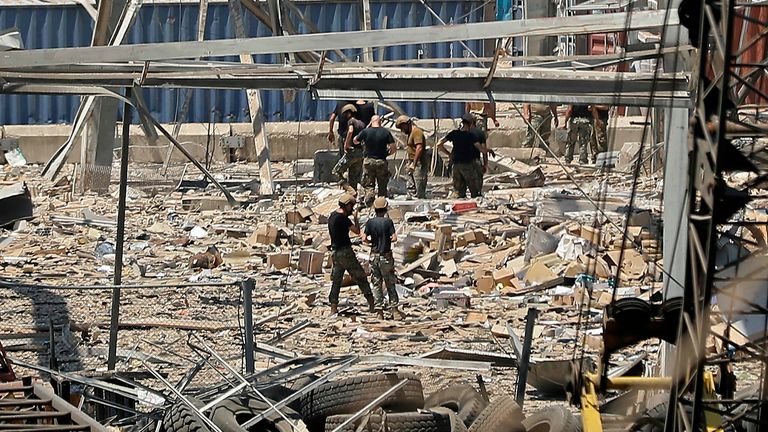It takes a very hardened sort of individual not to feel and empathise with the pain of new parents sitting outside the Intensive Care Unit where their little one is struggling to live.
“She’s only four days old,” her father, George Ajoury, told us.
“I was breastfeeding her,” Nelly Ajoury, her mother explained. “I tried my best to protect her but I just couldn’t.”
Mrs Ajoury has a broken nose and stitches in her arms, legs, thighs and forehead from the shards of glass which have pierced her skin multiple times.
Her little newborn daughter Sophie looks like a bundle of vulnerability.
She has a large bandage wrapped round her head and is being monitored in an incubator whilst doctors decide what the best course of treatment for her is.
They fear she’ll need surgery to relieve the pressure on her brain caused by swelling and bleeding. “We just hope she’s okay,” says her tearful mother. “We just want her to be okay. We’re not leaving without her.”
It’s just one sign that the city of Beirut is still in collective shock – but the anger will come soon.
It’s already beginning to bubble as they try to piece together their lives.
In less than a minute, everything changed. Loved ones died or were maimed. Homes were destroyed, streets were reduced to rubble, high-rise apartment blocks were punctured with giant-sized holes, some on every level.
“If I could get on a boat and leave Lebanon, I would,” one man told us. “There is no future for us here.” It was a sentiment expressed by many as we travelled around this city of destruction.
“I’ve lived here all my life,” another resident told us as she headed to try to see what she could recover from her shattered home.
“But never through all the years of war have I ever seen anything like this. I thought we had died.”
Fate had decided that Alan Chaoul would be out at the barber’s when the explosion happened just after 6pm local time Tuesday.
When he returned home, three floors of the house he shared with his parents looked as though it had been picked up, put in a tumble drier and set down again.
His father’s bed was strewn with rubble and furniture and his bedroom door was smeared with blood as he’d clawed his way out of the rubble and gone to hospital. “He’s ok,” Mr Chaoul said. “He’s very lucky.”
An estimated 300,000 other people have been left without homes like Mr Chaoul. We saw some sleeping on the pavements outside their businesses.
“We have no home to go back to and we needed to look after our belongings,” one elderly couple told us tearfully.
Humanitarian aid is coming in but for the Lebanese wondering where they will be sleeping tonight and whether tomorrow will be any better, there is no aid substantial enough to turn back the most cruel and crippling tragedy to strike a country which was already on its knees.




